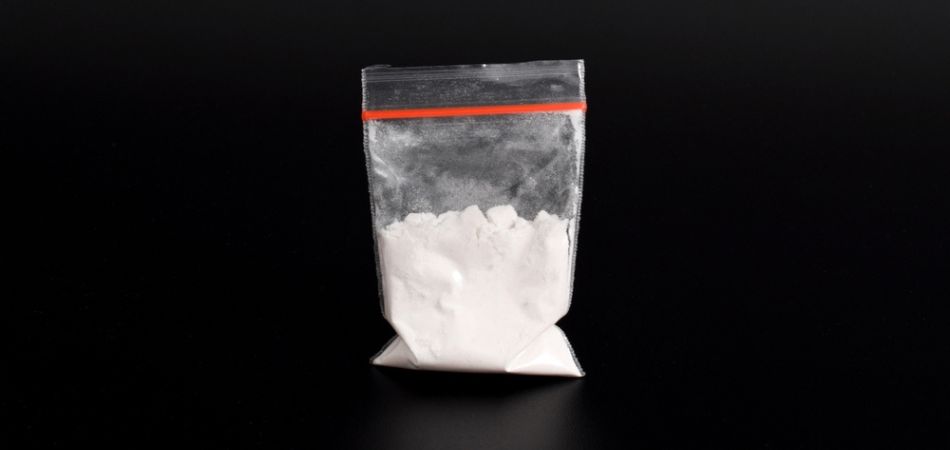Last Updated:
November 7th, 2025
According to research, more than half of people addicted to cocaine are also dependent on alcohol, and in most cases, they’re using both drugs at the same time. It’s a mix that’s not only common but incredibly dangerous. So why do these two substances go hand in hand so often?
This page explores the science behind this risky pairing and the serious harm it can cause.
How cocaine and alcohol work on the body
Before we dive into how cocaine and alcohol interact in the body, it’s important to understand how each one works on its own. Both drugs affect the body in very different ways and each comes with its own set of risks. But once combined, they can create a toxic and unpredictable experience. Understanding their individual effects is the first step in making sense of why using them together can be so dangerous.
How cocaine works on the body
Cocaine speeds up the body and mind, creating a sharp, intense high that can feel like a surge of confidence and excitement. It doesn’t last long, though, often wearing off within half an hour, which can leave people reaching for more to stay in that elevated state.
Behind the scenes, it’s overloading the brain with dopamine, the chemical that makes us feel good and driven. But once that dopamine drops, it can leave a person feeling low, restless or emotionally flat. Physically, the drug puts strain on the heart and nervous system, increasing the risk of serious complications over time.
How alcohol works on the body
Alcohol works differently. It slows the system down, often starting with a sense of relaxation or warmth. But as more is taken in, the effects deepen. Movement becomes harder to control, thoughts lose their sharpness and the body takes longer to respond, all while vital functions quietly become more impaired.
Individually, both substances can take a serious toll. But when they’re used together, the risks are multiplied in ways that can be deadly.
Why would someone want to mix cocaine and alcohol together?
After learning how differently alcohol and cocaine affect the body, you might be wondering: why would anyone mix the two? One slows you down, the other speeds you up, so surely they’d just cancel each other out?
But for many people, that contrast is exactly the appeal. The combination doesn’t feel like a clash; it can feel like a way to balance the night, chase a better high or hold on to a version of yourself you like more in social settings. And while that might make sense in the moment, it’s exactly what makes the mix so risky.
To feel more ‘in control’ while drinking
Alcohol on its own can make you feel sluggish or out of it after a while. Cocaine, with its sharp, energising buzz, can make you feel like you’ve got your edge back. You feel switched on, like the drink hasn’t really touched you, but that, of course, is the illusion. People often end up drinking far more than usual because they don’t feel drunk, pushing their body way past safe limits without realising it.
To boost confidence and shake off social nerves
On their own, both drugs are known for lowering inhibitions. But together, they can take things to another level. You might feel like your best, boldest self. All of a sudden, you’re talkative, charismatic, fearless. If you’ve ever struggled with self-doubt or social anxiety, the mix can feel like a shortcut to confidence. That feeling, though, is temporary. And it can lead to risky behaviour you wouldn’t normally consider.
To keep the high going
Cocaine’s high is short. One moment you’re flying, the next it’s gone, leaving you flat or craving more. Alcohol can blur that crash, make it softer and stretch the experience out a little longer. But the come-down always comes and it’s often worse when you’ve been drinking. To avoid that low, it’s common to take more cocaine and drink more alcohol, creating a dangerous back-and-forth that’s hard to step away from.
What happens to your body when you mix alcohol and cocaine?
Many people aren’t aware but mixing alcohol and cocaine creates a new chemical in your body called cocaethylene. This compound lasts longer than cocaine and is significantly more toxic. Every time you take both together, your liver is forced to process something it wasn’t built to handle.
Cocaethylene builds up quietly, causing serious strain on your body over time. It can lead to:
- Increased pressure on the heart
- Liver damage and reduced organ function
- Impaired mood control and heightened aggression
- A much higher risk of stroke, heart attack or sudden death
What makes this mix especially dangerous is how quietly the long-term damage can build. As the habit takes hold, your body is exposed to repeated doses of cocaethylene, which chips away at your health over time. The heart becomes more vulnerable, the liver starts to struggle and mental health can take a serious hit. By the time the signs are obvious, the damage may already be deep and far harder to undo.
Am I addicted to cocaine and alcohol?
It might have started as something occasional, maybe a line and a few drinks on the weekend, at a party or during a night out to celebrate something. At first, it felt like part of the fun. But as with any addictive pattern, what starts off feeling manageable can slowly begin to take hold.
If you’ve found yourself frequently taking cocaine and alcohol together or you’re unsure where you stand in your relationship with either substance, it’s worth pausing and checking in. Honest questions can help cut through the noise and give you a clearer picture of what’s really going on.
Here are six questions to consider. If you answer yes to any of them, it could be a sign that your use of alcohol, cocaine or both may be becoming a problem:
- Do you find it difficult to enjoy social events without using cocaine and drinking alcohol together?
- Have you ever planned to “just have a few drinks” but ended up taking cocaine as well?
- Have friends or family raised concerns about your drug or alcohol use, even if you brushed it off at the time?
- Do you feel anxious, low or irritable when you’re not using either substance?
- Have you tried to cut back or stop but found yourself returning to the same routine?
- Are you beginning to use more than you used to in order to feel the same effects?
If some of these questions hit close to home it might be time to reach out and talk to someone. There is support available and recovery is more than possible.
Where can I find support for cocaine and alcohol addiction?
When cocaine abuse and alcohol abuse become a regular part of life, it’s easy to feel trapped in a cycle that’s hard to break. At UKAT, we understand the complexities of Polysubstance Use Disorder and we’re here to help.
Our rehab programmes are built around what you need, starting with detox to safely manage withdrawal, followed by therapy that gets to the root of your relationship with both substances. When your time with us ends, aftercare support helps you stay on track long after you’ve left.
If you’re ready to take back control, reach out. We’ll walk with you from here.
(Click here to see works cited)
- Singh AK. Alcohol Interaction with Cocaine, Methamphetamine, Opioids, Nicotine, Cannabis, and γ-Hydroxybutyric Acid. Biomedicines. 2019 Mar 7;7(1):16. doi: 10.3390/biomedicines7010016. PMID: 30866524; PMCID: PMC6466217.
- Nestler EJ. The neurobiology of cocaine addiction. Sci Pract Perspect. 2005 Dec;3(1):4-10. doi: 10.1151/spp05314. PMID: 18552739; PMCID: PMC2851032.
- Pergolizzi J, Breve F, Magnusson P, LeQuang JAK, Varrassi G. Cocaethylene: When Cocaine and Alcohol Are Taken Together. Cureus. 2022 Feb 22;14(2):e22498. doi: 10.7759/cureus.22498. PMID: 35345678; PMCID: PMC8956485.



